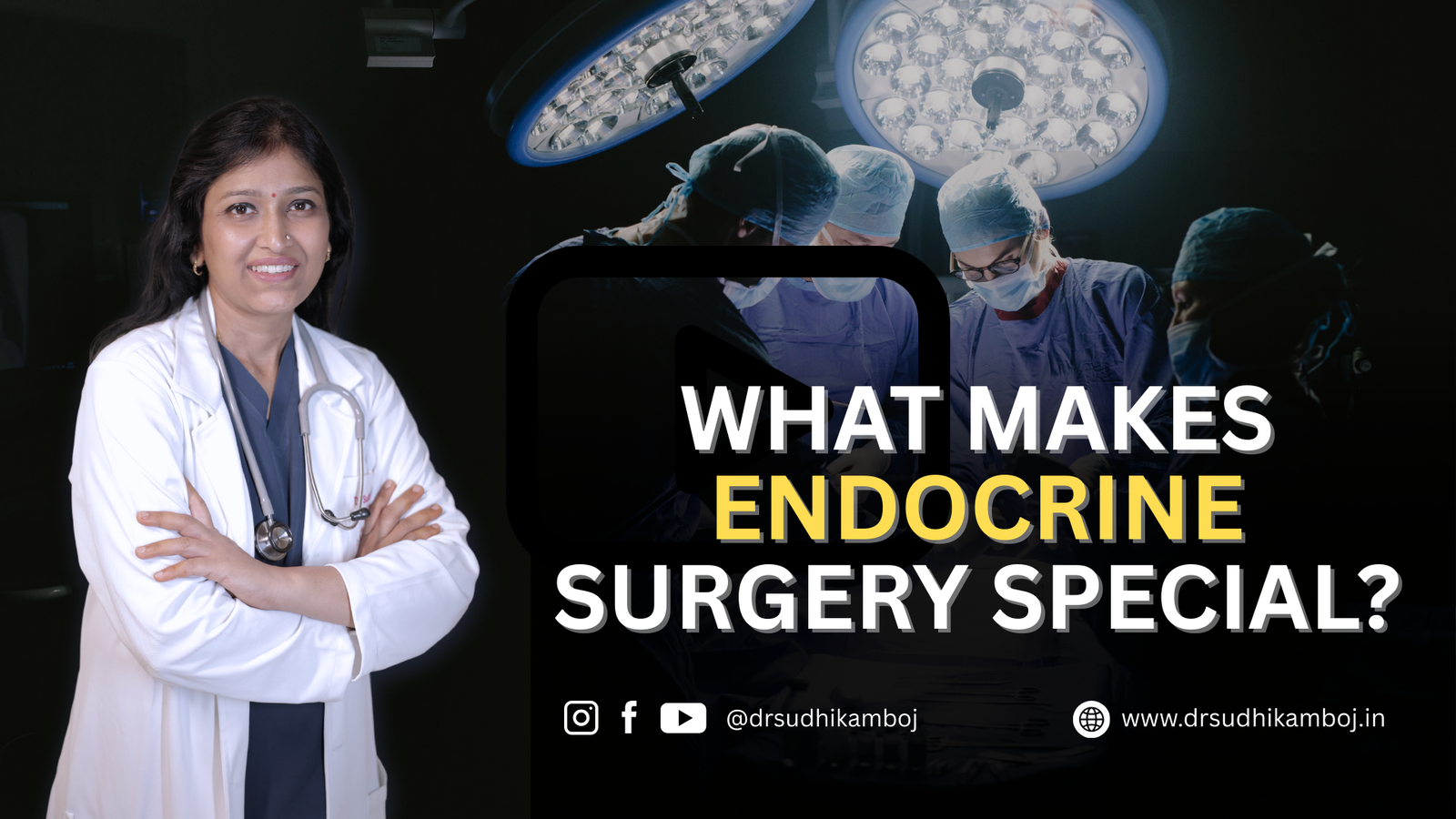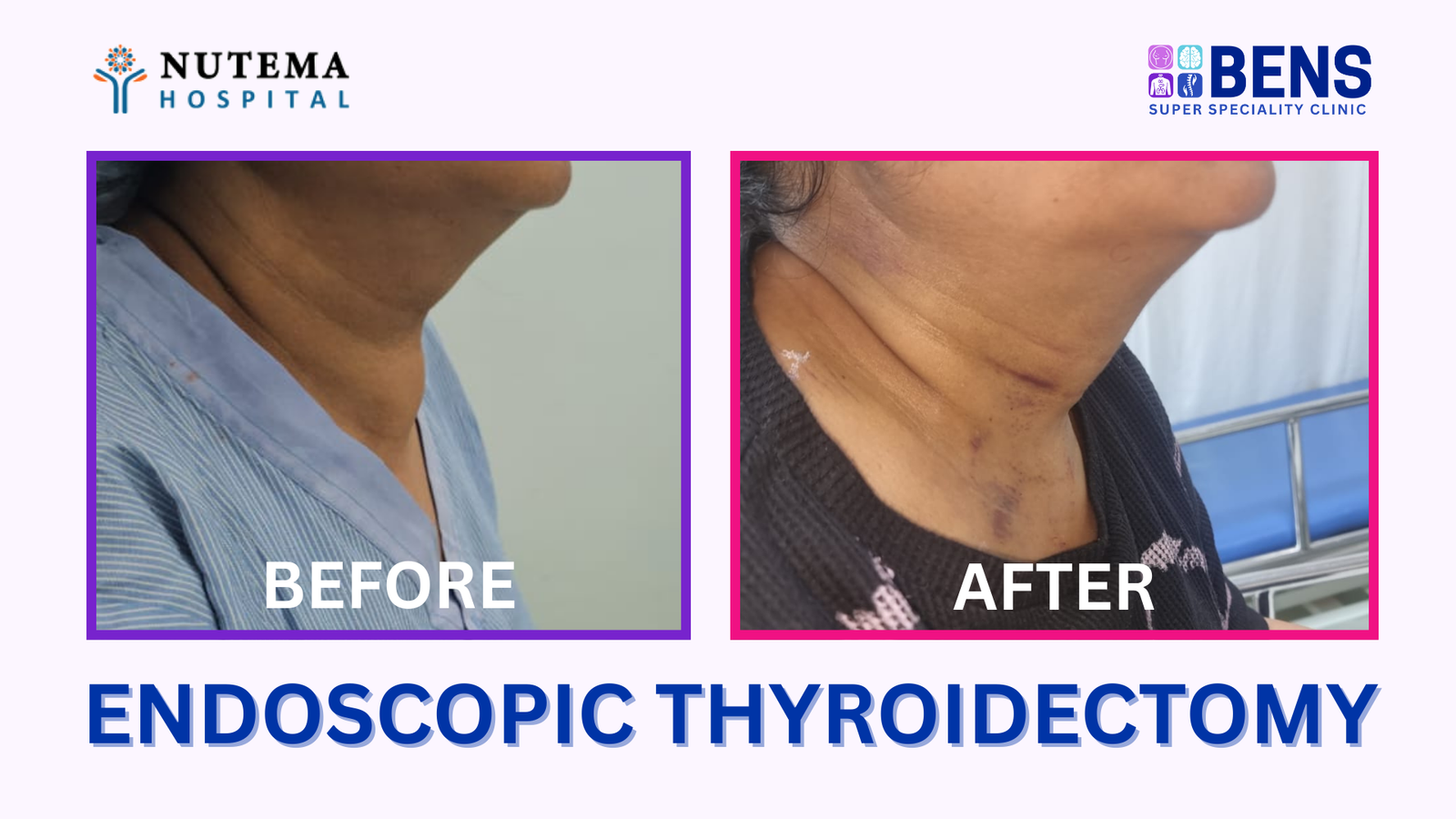Most people think of surgery as removing a diseased organ or repairing damage. But *endocrine surgery* is different. It’s a blend of science, precision, and long-term care. Endocrine glands—like the thyroid, parathyroid, adrenals, pancreas, and some neuroendocrine tissues—are small, but they control hormones that regulate nearly every function in our body.
This makes endocrine surgery one of the most fascinating, multidisciplinary, and rapidly evolving branches of modern medicine.
Why Endocrine Surgery Stands Out
Unlike many surgical specialties, endocrine surgery doesn’t stop at anatomy—it also deals with *physiology*. Endocrine surgeons must understand not only how to remove a diseased gland, but also how hormone changes will affect the entire body afterward.
It is a team sport involving endocrinologists, nuclear medicine specialists, radiologists, anesthetists, pathologists, and geneticists. Together, they ensure patients get safe surgery, accurate diagnosis, and long-term care.
What sets endocrine surgery apart is its guiding principle:
“Cure with precision, but preserve quality of life.”
A Journey of Progress
The specialty has matured over the last 60 years. In the past, endocrine operations—especially on the thyroid—were considered dangerous, even barbaric, with mortality rates as high as 40%. Today, thanks to meticulous techniques and technology, they are among the *safest procedures worldwide*.
- Thyroid surgery shifted from subtotal resections to safe, precise total thyroidectomy with nerve preservation.
- Parathyroid surgery moved from lengthy explorations to minimally invasive “keyhole” operations.
- Adrenal surgery evolved from large incisions to safe laparoscopic and robotic procedures.
- Pancreatic endocrine surgery became more refined, allowing small tumors to be removed without damaging the gland.
This evolution was powered by research, innovation, and the tireless dedication of endocrine surgeons worldwide.
The Big Four: Highlights of Endocrine Surgery
1. Thyroid Surgery – From “Horrid Butchery” to Day-Care Safety
Once banned in France for its high mortality, thyroid surgery is now one of the most refined operations.
- Modern thyroidectomy focuses on nerve preservation (to protect the voice) and saving parathyroid glands (to prevent calcium imbalance).
- Large goiters, especially common in iodine-deficient regions, remain challenging but are successfully managed in experienced hands.
- Today, total thyroidectomy is standard for most cancers and multinodular goiters, with minimal complications.
2. Parathyroid Surgery – The “Elusive” Gland
Parathyroids are tiny, often hidden, and difficult to locate. Surgeons may spend hours searching for a diseased gland, especially when it sits in an unusual place.
- Modern tools like intra-operative PTH testing and imaging have improved outcomes.
- Successful surgery often produces immediate relief from fatigue, bone pain, and mental fog—making it one of the most gratifying operations.
3. Adrenal Surgery – Defusing the “Time Bomb”
Adrenal tumors, especially pheochromocytomas, can release dangerous hormone surges that mimic heart attacks or strokes.
- Once called “the 10% tumor,” today we know nearly 30% are genetic.
- Safe surgery requires careful preparation with blood pressure–controlling medicines and precise anesthetic management.
- With laparoscopic and retroperitoneoscopic techniques, adrenalectomy is now safe and minimally invasive, with mortality rates below 1%.
4. Pancreatic Endocrine Surgery – The Surgeon’s Detective Work
Functional tumors like insulinomas or gastrinomas are small but dangerous. They hide deep in the pancreas and can be life-threatening.
- Endocrine surgeons rely on both modern imaging and the trained touch of their hands to locate these tumors.
- Surgery must remove the tumor while preserving as much of the pancreas as possible—demanding extraordinary skill.
MEN Syndromes – A Lifelong Commitment
Endocrine surgery also manages *hereditary conditions* like Multiple Endocrine Neoplasia (MEN). These patients often develop multiple and aggressive tumors.
- Cure is challenging, and surgeries may be repeated over a lifetime.
- Surgeons not only operate but also provide long-term follow-up, counseling, and family screening.
This is where endocrine surgery goes beyond the operation—it becomes a lifelong partnership with patients and their families.
Endocrine Tumors – The Good, the Bad, and the Ugly
Endocrine tumors range widely:
The Good: Papillary thyroid microcarcinomas, with excellent outcomes.
The Bad: Aggressive cancers like medullary thyroid carcinoma.
The Ugly: Deadly tumors like anaplastic thyroid cancer or adrenocortical carcinoma.
While miracle cures aren’t here yet, *translational research* is bringing steady progress in treatment, genetics, and targeted therapy.
Where We Stand Today
- Thyroid and parathyroid disorders are being diagnosed more frequently.
- Despite more trained specialists, access to high-volume endocrine surgeons remains limited in many parts of the world.
- Endocrine surgery remains a specialty where the surgeon must balance radical cure with preservation of function and quality of life.
It is not simply about cutting—it is about saving nerves, protecting glands, preserving voices, preventing lifelong deficiencies, and ensuring patients live full, healthy lives.
Conclusion: The Future of Endocrine Surgery
Endocrine surgery is special because it combines:
- Anatomical precision with physiological understanding
- Technology with human touch
- Cure with quality of life
It has come a long way from being considered “dangerous” to becoming a safe, highly specialized, and rewarding discipline.
The future lies in training the next generation—surgeon-scientists who will continue to innovate, conduct research, and push boundaries. In the end, endocrine surgery is not just about removing a gland—it’s about restoring balance to life itself.



